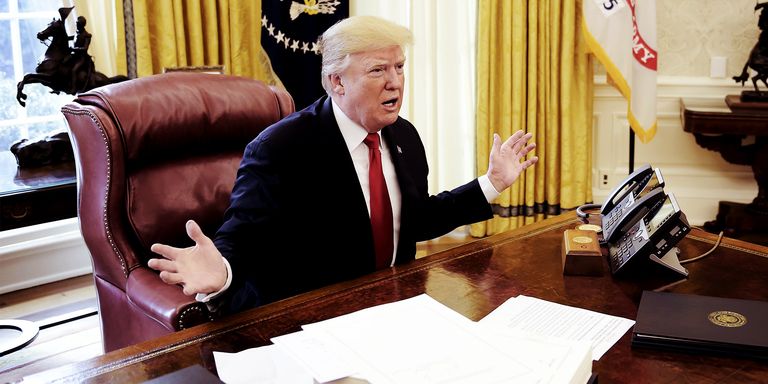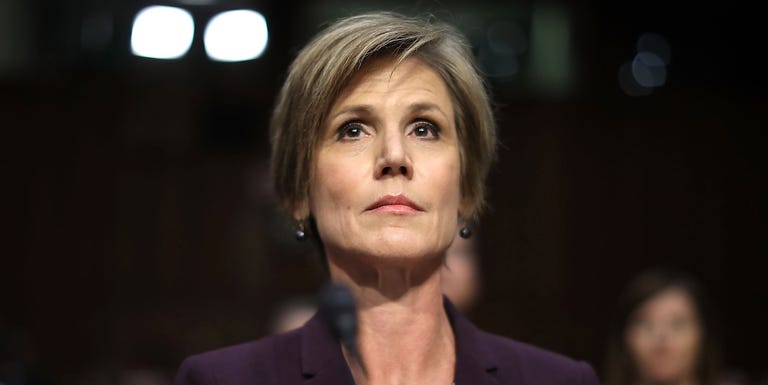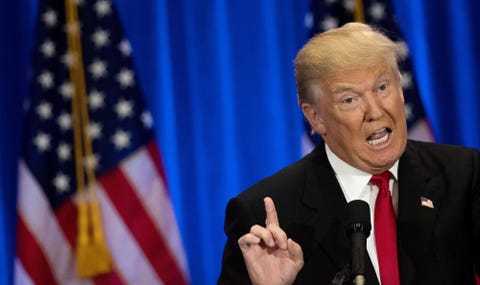Alternet – Environment
Koch-Funded Anti-Climate Group Tells Women to Ignore Concerns About Toxic Chemicals
A chemical industry front group defends the freedom of corporations to pollute.
By Stacy Malkan, AlterNet December 27, 2017
 Photo Credit: DonkeyHotey/Flickr CC
Photo Credit: DonkeyHotey/Flickr CC
At a recent soiree at Union Station, the D.C. power elite gathered in an anti-public health confab dressed up as a celebration of women that should concern anyone who cares about the health and rights of women and children.
The Independent Women’s Forum drew an impressive array of Republican politicians to its annual gala sponsored by, among others, the American Chemistry Council, the tobacco company Philip Morris, the cosmetics industry trade group, Google and the right-wing American Legislative Exchange Council.
Speakers included House Speaker Paul Ryan and Trump adviser Kellyanne Conway, who won the IWF Valor Award for being a “passionate advocate for limited government” who does not embrace “the idea that being a woman is a handicap.” Conway is also an IWF board member.
So what is the Independent Women’s Forum? IWF got its start 25 years ago as an effort to defend now-Supreme Court Justice Clarence Thomas as he faced sexual harassment charges. The group has since raised millions from the secretive foundations of the Koch brothers and other right-wing billionaires to carry out its mission of “increasing the number of women who value free markets and personal liberty.”
In the world of the IWF—a group Joan Walsh described in The Nation as “the ‘feminists’ doing the Koch’s dirty work”—that means defending the freedom of corporations to sell toxic products and pollute the environment, while trying to frame that agenda as good for women and children.
E-cigarettes should be approved because of the unique biological needs of women, for example, and climate science education is too scary for students. (The e-cig letter is “standard Philip Morris PR,” says tobacco industry expert Stan Glanz, and Greenpeace classifies IWF as a “Koch Industries climate denial front group.”)
Women can also benefit by ignoring “alarmist” concerns about toxic chemicals, according to an IWF lecture series sponsored by Monsanto.
To give you a sense of the messaging on chemicals: Moms who insist on organic food are arrogant, snobby “helicopter parents” who “need to be in control of everything when it comes to their kids, even the way food is grown and treated,” according to Julie Gunlock, director of IWF’s “Culture of Alarmism” project, as quoted in an article titled “The tyranny of the organic mommy mafia” that was written by an IWF fellow.
At the IWF gala, Gunlock posed for a photo op with Monsanto staffer Aimee Hood and Julie Kelly, who writes articles casting doubt on climate science and pesticide risk, and once even called climate hero Bill McKibben “a piece of shit.”
Gunlock and Kelly are “rock stars,” Hood tweeted.
“I’m framing this,” Monsanto employee Cami Ryan tweeted in return.
Put a frame around the whole shindig and behold the absurdity of corporate-captured politics in America, where policy leaders openly embrace an anti-women “women’s group” that equates “freedom” with eating toxic pesticides, at an event sponsored by the chemical industry, a tobacco company, an extremist group that wants to do away with a voter-elected Senate and the world’s most influential news source.
Meanwhile in the rational world
Recent science suggests that if you want to get pregnant and raise healthy children, you should reject the propaganda that groups like the Independent Women’s Forum are trying to sell.
In just the past few weeks, the Journals of the American Medical Association published a Harvard study implicating pesticide-treated foods in fertility problems, a UC San Diego study documenting huge increases in human exposure to a common pesticide, and a physician’s commentary urging people to eat organic food.
I wrote about those studies in more detail here, “Trying to get pregnant? Science suggests: eat organic and regulate the pesticide industry”.
Mainstream groups have been giving similar advice for years.
In 2012, the American Academy of Pediatrics recommended reducing children’s exposure to pesticides due to a growing body of literature that links pesticides to chronic health problems in children, including behavioral problems, birth defects, asthma and cancer.
In 2009, the bipartisan President’s Cancer Panel reported: “the true burden of environmentally induced cancer has been grossly underestimated.”
The panel urged then-President George W. Bush “most strongly to use the power of your office to remove the carcinogens and other toxins from our food, water, and air that needlessly increase health care costs, cripple our Nation’s productivity, and devastate American lives.”
Unfortunately for our nation, acting on that advice has not been possible in a political system indentured to corporate interests.
Corporate capture of health and science
For decades, pesticide corporations have manipulated science and U.S. regulatory agencies to keep the truth hidden about the health dangers of their chemicals.
The details are being revealed by hundreds of thousands of pages of industry documents turned loose from legal discovery, whistleblowers and FOIA requeststhat have been examined in government hearings and by many media outlets.
For a synopsis of Monsanto’s “long-running secretive campaign to manipulate the scientific record, to sway public opinion, and to influence regulatory assessments” on its herbicide glyphosate, see this essay by my colleague Carey Gillam in Undark magazine.
As one example of government/corporate collusion: in 2015, on the Obama administration’s watch, the EPA official in charge of evaluating the cancer risk of glyphosate allegedly bragged to a Monsanto executive about helping to “kill” another agency’s cancer study, as Bloomberg reported.
Suppressing science has been a bipartisan, decades-long project. Since 1973, Monsanto has presented dubious science to claim the safety of glyphosate while EPA largely looked the other way, as Valerie Brown and Elizabeth Grossman documented for In These Times.
Brown and Grossman spent two years examining the publicly available archive of EPA documents on glyphosate, and reported:
“Glyphosate is a clear case of ‘regulatory capture’ by a corporation acting in its own financial interest while serious questions about public health remain in limbo. The record suggests that in 44 years—through eight presidential administrations—EPA management has never attempted to correct the problem. Indeed, the pesticide industry touts its forward-looking, modern technologies as it strives to keep its own research in the closet, and relies on questionable assumptions and outdated methods in regulatory toxicology.”
The only way to establish a scientific basis for evaluating glyphosate’s safety, they wrote, would be to “force some daylight between regulators and the regulated.”
Limited government means freedomtoharm
In Trump’s Washington, there is no daylight at all between the corporations selling harmful products and the agencies that are supposed to regulate them.
EPA Administrator Scott Pruitt is pushing scientists off advisory boards and stacking the EPA with political appointees connected to the oil, coal and chemical industries, many of whom are connected to climate science deniers.
As one of his first official actions, Pruitt tossed aside the recommendation of EPA’s scientists and allowed Dow Chemical to keep selling a pesticide developed as a nerve gas that is linked to brain damage in children.
“Kids are told to eat fruits and vegetables, but EPA scientists found levels of this pesticide on such foods at up to 140 times the limits deemed safe,” Nicholas Kristof wrote in a scathing NYT op-ed. “Trump’s most enduring legacy may be cancer, infertility and diminished I.Q.s for decades to come.”
Pruitt has gone so far as to put a chemical industry lobbyist in charge of a sweeping new toxics law that was supposed to regulate the chemical industry.
It’s all so outrageous – but then, it has been for a very long time.
That sweeping new toxics law, which passed last year in a hailstorm of bipartisan glory, was opposed by many environmental groups but lauded by—and reportedly written by—the American Chemistry Council.
“The $800 billion chemical industry lavishes money on politicians and lobbies its way out of effective regulation. This has always been a problem, but now the Trump administration has gone so far as to choose chemical industry lobbyists to oversee environmental protections,” as Kristof described it.
“The American Academy of Pediatrics protested the administration’s decision on the nerve gas pesticide, but officials sided with industry over doctors. The swamp won. The chemical industry lobby, the American Chemistry Council, is today’s version of Big Tobacco…”
“Someday we will look back and wonder: What were we thinking?!”
The character of our country
A decade ago, the Independent Women’s Forum presented its Valor Award to Nancy Brinker, founder of the Susan G. Komen for the Cure, the nation’s largest breast cancer organization – a group that has also drawn criticism for taking money from polluting corporations and promoting unhealthy food and toxic products.
At the 2007 IWF gala, in an acceptance speech she called “The Character of our Country,” Brinker warned that millions of lives will be lost unless America acts to avert the coming “cancer tsunami.”
But then, she said: “My friends, this is not a problem of politics. When it comes to cancer, there are no Republicans or Democrats, no liberals or conservatives.”
Rather, she said, invoking vagueness as she stood before a group that tells women not to worry about pesticides, at an event awash in corporate cash, beating cancer is a matter of summoning the will to make cancer a “national and global priority!”
But that is exactly a problem of politics. It’s about Republicans and Democrats, both of whom have let Americans down by failing to confront the chemical industry. It’s about summoning the political will to get chemicals linked to cancer, infertility and brain damage off the market and out of our food.
In the meantime, we can take the advice of science: eat organic and vote for politicians who are willing to stand up to the pesticide industry.
This article first appeared in Huffington Post.
Stacy Malkan is co-director of U.S. Right to Know, a food industry research group that voluntarily discloses its funding. She is the author of Not Just a Pretty Face: The Ugly Side of the Beauty Industry and also co-founded the Campaign for Safe Cosmetics. Follow her on Twitter @stacymalkan.

 Getty
Getty Getty
Getty Getty
Getty Getty
Getty Getty
Getty Photo Credit: DonkeyHotey/Flickr CC
Photo Credit: DonkeyHotey/Flickr CC (CREDIT: AP PHOTO/RICK BOWMER, FILE)
(CREDIT: AP PHOTO/RICK BOWMER, FILE) U.S. Rep. Mick Mulvaney, R-S.C., speaks at the Freedom Summit, Saturday, May 9, 2015, in Greenville, S.C. Photo by Rainier Ehrhardt/AP
U.S. Rep. Mick Mulvaney, R-S.C., speaks at the Freedom Summit, Saturday, May 9, 2015, in Greenville, S.C. Photo by Rainier Ehrhardt/AP
